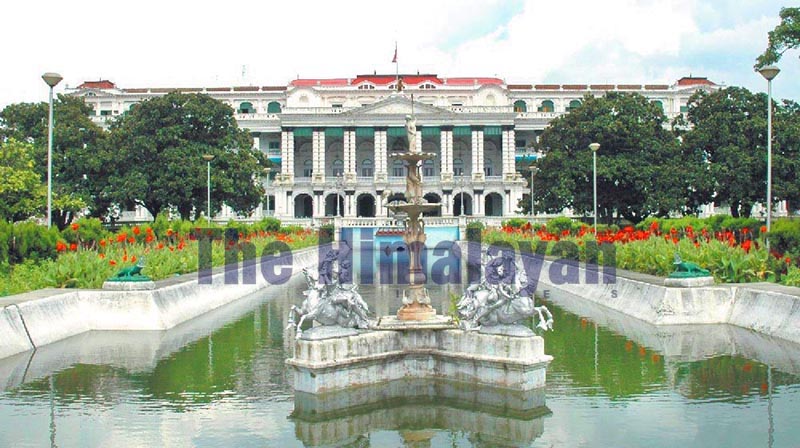Govt raises infra tax on fuel by Rs 5 a litre
Kathmandu, February 27
Despite its inability to spend over Rs 40 billion collected in infrastructure tax for development of the country’s infrastructure as envisaged earlier, the government has raised the tax levied on the sale of petroleum products by five rupees a litre.
Finance Minister Yubaraj Khatiwada, who is also the spokesperson for the government, said a recent Cabinet meeting had decided to raise the infrastructure tax on fuel (petrol, diesel, kerosene and aviation turbine fuel) by five rupees per litre to Rs 10 a litre.
“The decision intends to accumulate resources for the development of infrastructure projects,” he added.
The government has been collecting five rupees per litre as infrastructure tax on fuel since May 2016. The tax was meant for developing the 1,200-megawatt hydropower project on the Budhi Gandaki River that flows between Gorkha and Dhading districts.
Since then more than Rs 40 billion has been collected as infrastructure tax from fuel, as per NOC. However, the development of Budhi Gandaki Hydropower Project has not progressed so far, as the project is yet to complete the process of compensating owners of the acquired land.
Consumer rights activists condemned the decision to raise tax on fuel saying that it would add financial burden on consumers.
“Nepal Oil Corporation will ultimately pass this financial burden to consumers who are already hit by excessive inflation on both food and non-food items,” said Prem Lal Maharjan, president of National Consumer Forum.
Meanwhile, higher fuel prices will not only hit consumers but also the economy at large, as rise in fuel prices also means rise in transportation costs.
Higher transportation costs will make goods costlier and raise inflation.
According to Nepal Rastra Bank, the consumer price inflation stood at 6.82 per cent in mid-January, surpassing the government’s target to keep inflation below six per cent in the ongoing fiscal.
However, NOC officials said the decision to raise infrastructure tax on fuel was taken with the consent of NOC and that the raised tax amount would not affect the retail price of petroleum products.
“The additional tax burden will not be transferred to consumers and will be adjusted from NOC’s profit,” said Sushil Bhattarai, deputy managing director of the oil corporation.
According to him, the corporation has been booking a profit of more than five rupees per litre on the sale of petrol, diesel, kerosene and aviation turbine fuel.






